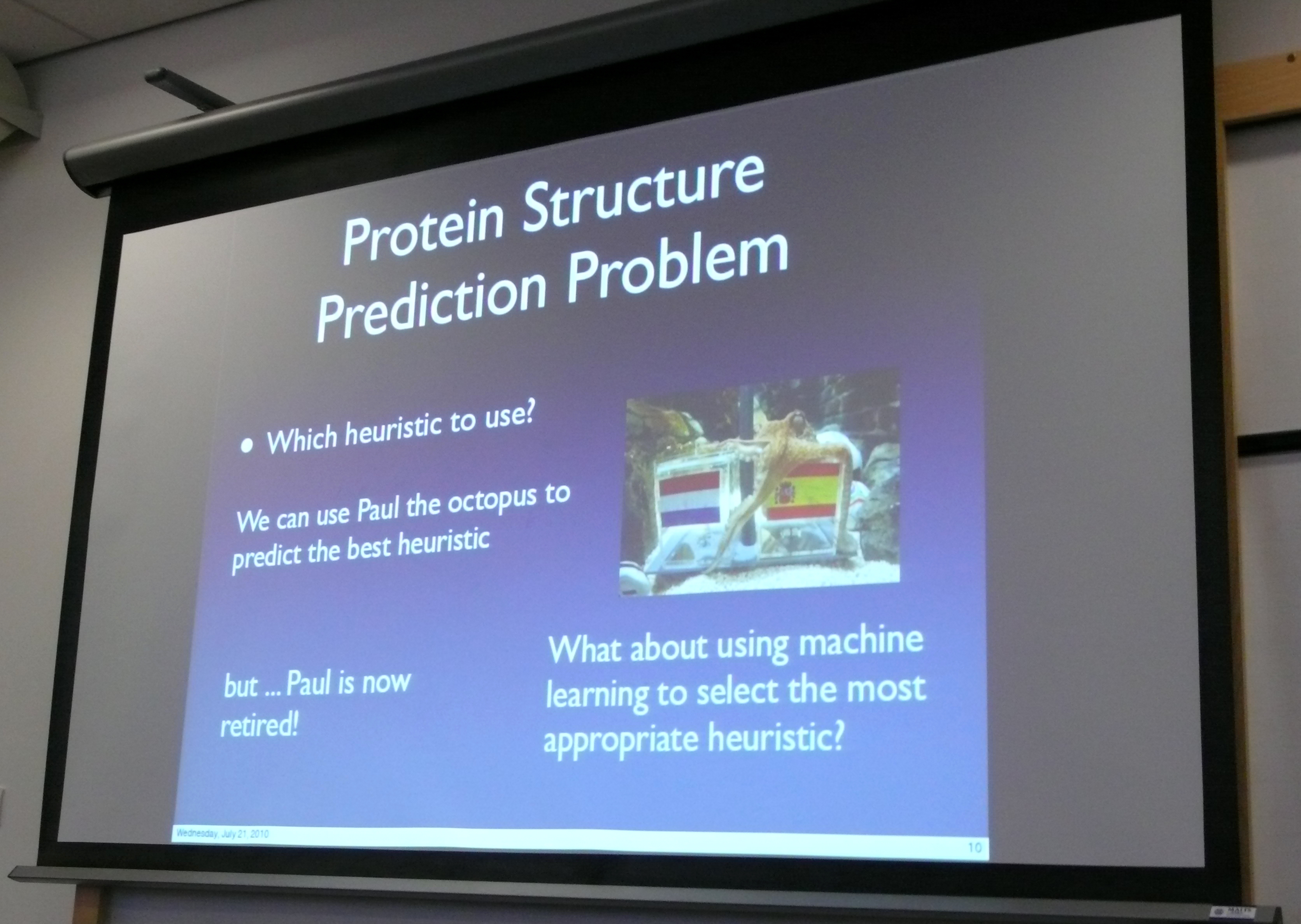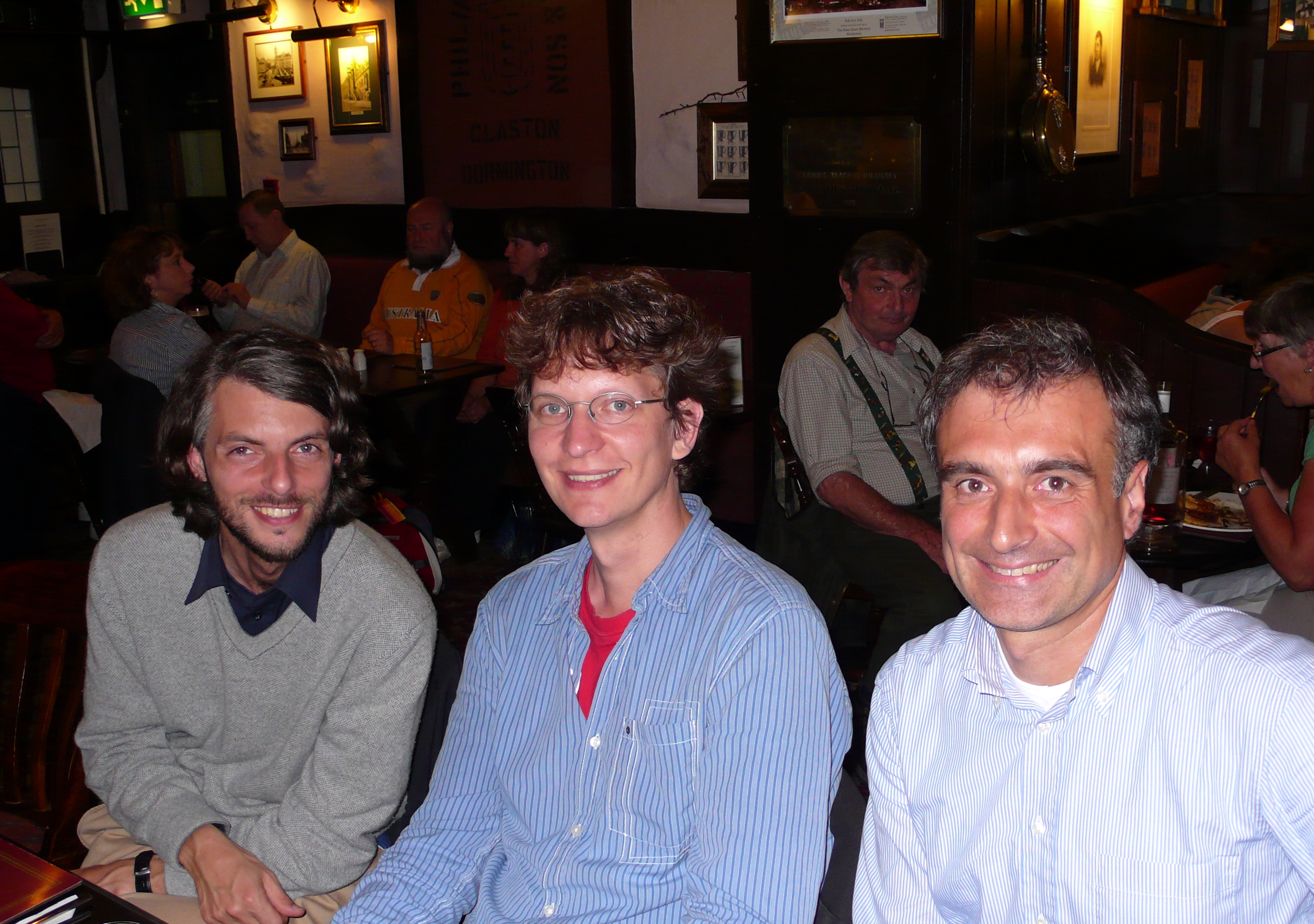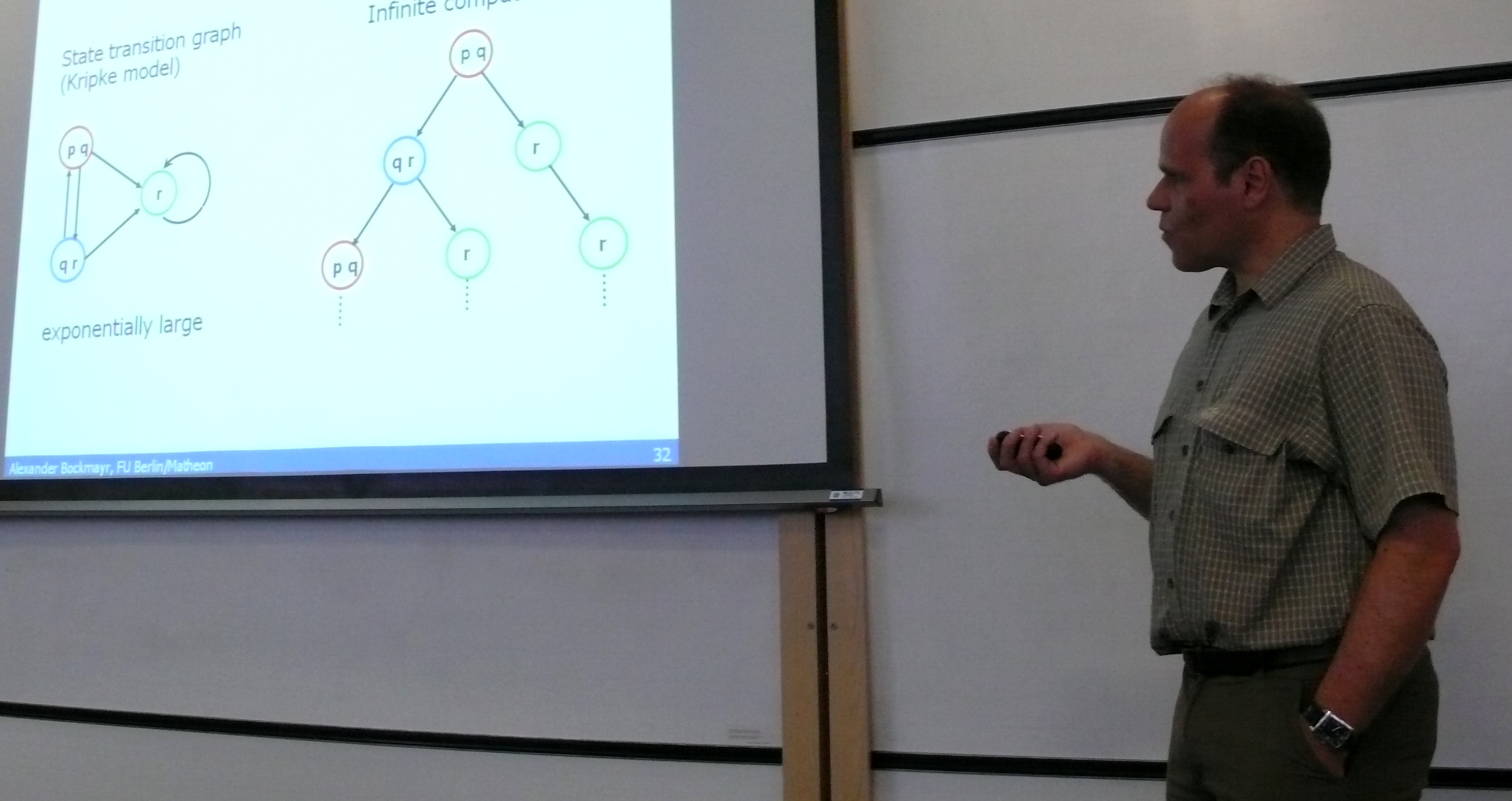Alessandro Dal Palù, Univ. of Parma, Italy
Sebastian Will, MIT, USA
This year the Workshop on Constraint based methods for Bioinformatics (WCB) took place in Edinburgh during FLOC 2010. In this report we would like to summarize the event and the distinctive contributions that apply constraint technology to challenging problems originated by biological sciences.
In recent years modern biology shifted gear and started to handle tremendous amount of data and faced new computational problems. From one side, many routine tasks of biological research are performed using well-established (and sometimes polynomial) algorithms. There, the rapid growth of biological data bases still challenges bioinformatics to develop even more efficient solutions. On the other side, the increasing complexity of studied systems needs new computational solutions that often have to face the NP-hardness of the problems at hand. In both cases, we can conclude that computation has become an indispensable mean for today’s bio-sciences.

The goal of the workshop is to provide an excellent panorama of recent approaches for tackling Bioinformatics problems using constraint-based methodology. Furthermore WCB acts as a platform for discussion among experts in this area. Many Bioinformatics problems are naturally formalized in constraint-systems over finite domains or reals. Moreover, the phase of prototyping and interaction with bio-scientistsis greatly simplified by the presence of a constraint based system, where one can quickly modify and test his/her model. Constraint techniques proved to be successful for a variety of problems. Some particular topics considered are sequence analysis,biological systems simulations, protein structure prediction and docking, pedigree analysis, haplotype inference.
The interest on the topic started more than 10 years ago, witnessed by the workshops Constraints and Bioinformatics/Biocomputing associated to CP97 and CP98 and later, starting from 2005 WCB series have been held regularly every year, with recurrent associations to CP/ICLP/CPAIOR conferences. This year, we accepted 9 strong workshop contributions out of high quality submissions. The topics comprise analysis of pedigrees, haplotypes and differentiation of species. Furthermore, alignment of RNA with complex structures, protein structure analysis and prediction, and finally, the analysis of metabolic pathways and the modeling of biological systems. Moreover, the workshop benefited by the excellent invited talk by Alexander Bockmayr about Constraint-based modeling in systems biology.
We had 21 registered participants to the event plus others in the conference room.

We observe a high and increasing interest in the workshop, being this the 6th consecutive edition. The diversity of topics and the reported results emphasize that constraints provide a valuable tool for bioinformatics and promise significant advance for a broad variety of applications.



